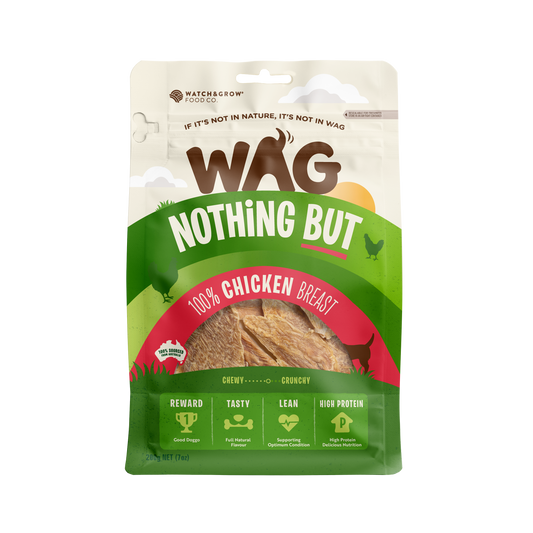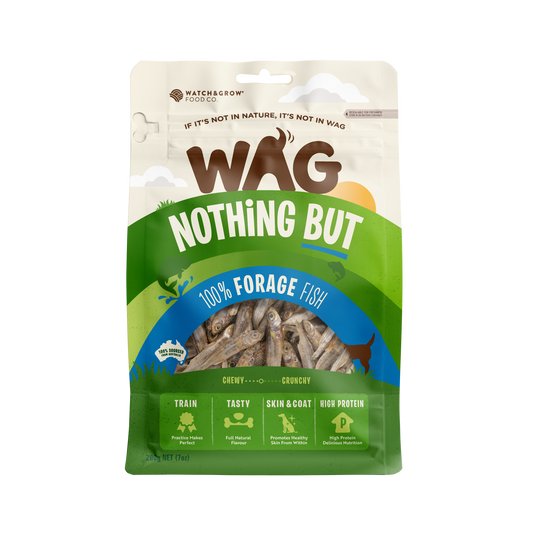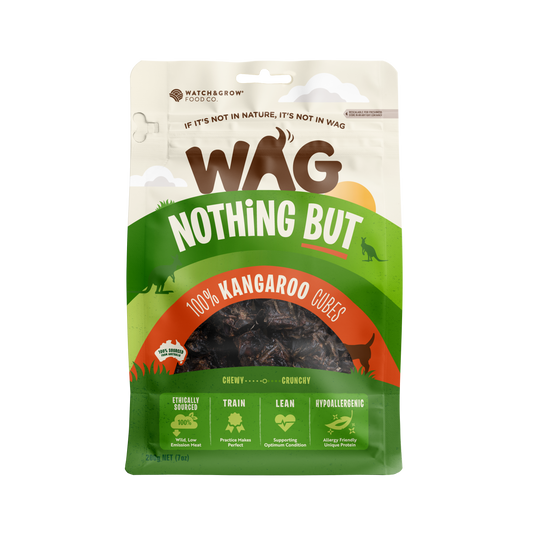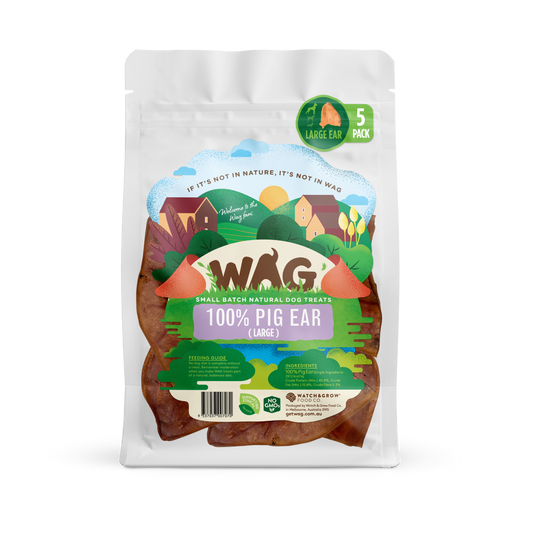Our Guide On How To Socialise Your Dog & Why It Is So Important
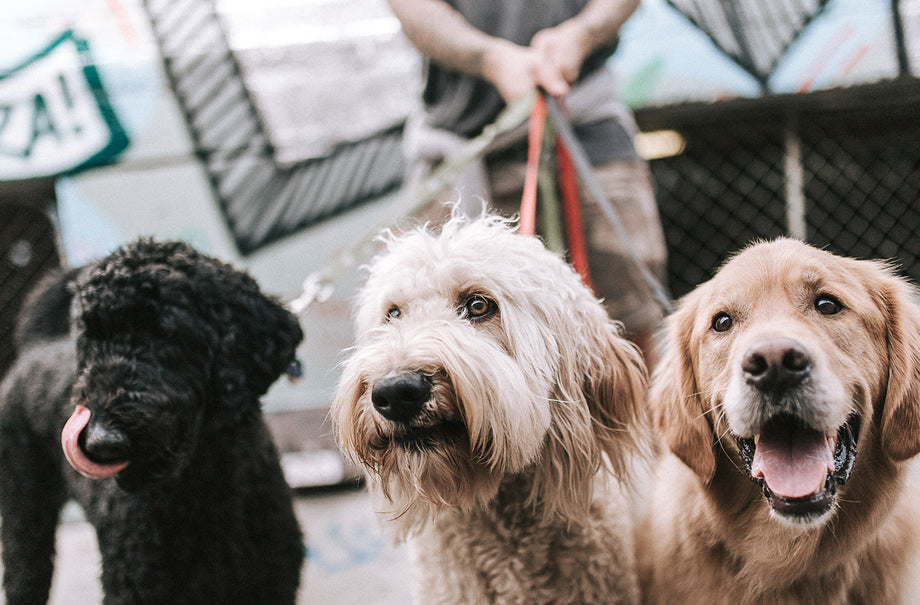
Socialisation for dogs is important for the growth and development of your pooch, and is part of raising a well-rounded canine.
There are different ways you can socialise your dog, and it’s a good idea to start from a young age - but it's not too late if you've got an adult dog who is lacking good social skills.
Let's take a look at a puppy socialisation checklist, how to socialise your dog and why dog socialisation training is so important.
What is dog socialisation?
Socialisation is a learning process a dog goes through to learn valuable life skills, including proximity to other dogs and understanding the world, different people and new situations.
Creating positive associations around other dogs, new sights and different sounds will minimise the chance of your dog exhibiting behaviours related to anxiety such as fear in different environments, aggression or fear around unfamiliar dogs, and mistrust of unfamiliar people.
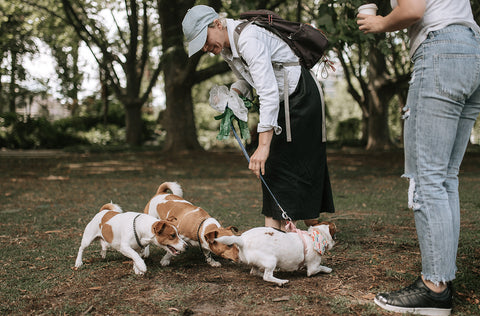
Why is doggy socialisation so important?
Positive socialisation teaches your dog how to react to the world. It encourages a balanced life without unnecessary fear, anxiety, behavioural problems or aggression. Socialisation begins when a puppy is very young, and helps to prepare them for the outside world.
A dog that hasn't been properly socialised may exhibit unfavourable behaviours such as:
- Aggression towards other dogs or people
- Nervous when on a walk or out of the home
- Become over-excited easily
- Raised hackles (hair along back) around other dogs or unfamiliar people
- Separation anxiety
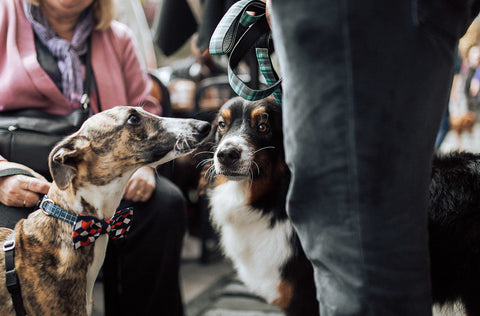
When should puppy socialisation be started?
Puppy socialisation starts as early as 3 weeks old among a puppy and their littermates. It's important not to separate a puppy from their mother and litter too soon, as it can mean they miss out on this vital early socialisation period.
The best time for socialisation is in the first several months of a dog's life. This is the time they are most receptive to new things, and are less likely to be fearful.
As soon as you welcome your puppy into their new home, socialisation training has already begun. Every new person, sound, sight and smell is a new experience for your puppy to learn about the world. Encountering new things in a positive way is vital for positive socialisation and growing their confidence.
Although the best time for socialisation is during the early puppy stage, it's never too late to socialise a dog. Older dogs can still be socialised, it will just take a little extra commitment, energy and time.
Can my puppy socialise with vaccinated dogs?
In short, yes! As long as you’re sure that the other dog is up to date with their vaccinations, your new puppy can socialise with them. Just make sure it’s in a safe place where no other dogs have been, such as your backyard.
If you already have a dog and are bringing a new puppy into the home, make sure your older dog is fully up to date with their vaccinations. Then there’s no reason at all that your new furry addition can’t socialise with your other canine companion right away.
How to socialise your dog
Puppies
While your little furry friend is waiting for their vaccinations, there's plenty of things you can do at home to encourage exploration of the world. Expose your pooch to lots of different situations, sounds and people. Getting your furry friend used to loud noises like vacuum cleaners is a good idea while they're still young and learning. Once your puppy has settled into their new home after a few weeks, you can slowly start inviting visitors over so your puppy can meet new people.
The good news is your puppy doesn't need to wait for all their vaccinations before starting puppy school. Usually dog owners are advised to wait two weeks after the first vaccination before taking their furry pal to puppy classes. Puppy schools will ensure the class is safe for the young dogs to start socialising with one another while they wait to complete their vaccinations.
After your new puppy has received all their vaccinations, it's time to get out into the big wide world! Expose them to a wide variety of different environments - dog parks, the beach, outside a school at busy pickup time - but make sure you follow their lead. We want to ensure that your dog is having positive experiences, or it can create negative associations.
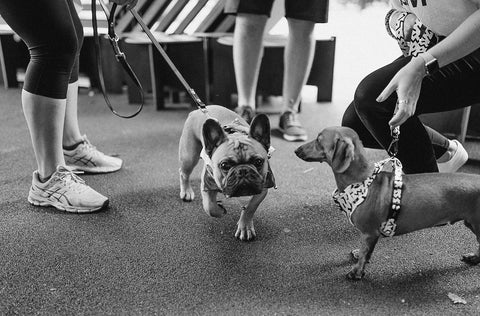
Older pooches
It's not too late to socialise older dogs. Take your dog on frequent walks - this is a good way of exposing your furry friend to different sights, smells and sounds. It can also be a good way to expose them to new people and other dogs at a safe distance.
Start out small - don't immediately try a dog park or somewhere very busy with lots of other dogs. Each time your dog remains calm in a new or triggering situation, reward them with lots of positive reinforcement like a treat, pats and praise.
Follow their lead - pay attention to your doggo’s body language, and if they are fearful or aggressive, remain calm. Remember we want to avoid bad experiences which reinforce their fear. It may be worth taking a step backwards and starting even smaller until your dog is more comfortable.
Check out some adult dog classes in your area, which can help socialise your dog in a controlled environment.
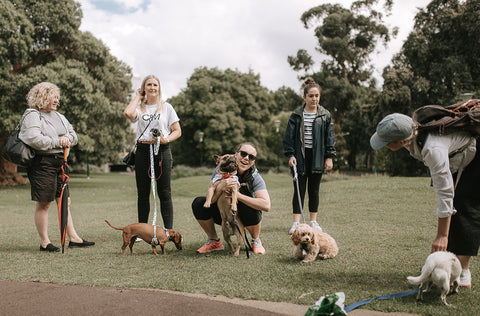
Other dog socialisation training tips
Make sure you're feeling calm and patient during socialisation training. Your dog can pick up on your cues, so if you're stressed or nervous, they'll be able to tell.
Offer positive reinforcement when your dog shows good behaviour. All dogs like different things, so find the reward that your dog responds to - praise, treats, pats - and use that to let them know they're doing a good job.
Persistence is key. You'll see the best results if you keep exposing your dog to the outside world. Continuation is important so that your dog keeps up their socialisation skills - if you stop taking your dog out and exposing them to other people and dogs, they can forget what they've learned.
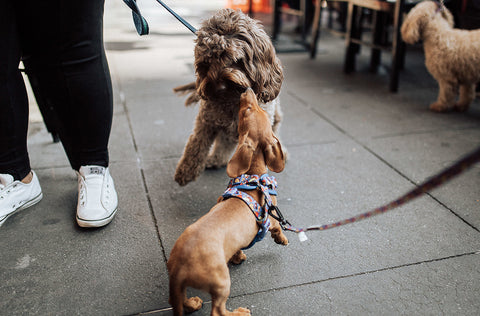
The best treats for your doggo
Treats are a great form of positive reinforcement for socialisation training with your furry friend. Training dog treats can let your pooch know they’re doing a good job - try offering them high reward dog treats like kangaroo liver or chicken breast for dogs.
Check out our range of WAG natural dog treats which are free from hidden nasties, so you know you're giving your pooch the very best.
Shop the Recipe
WAG Team
Up Next
Doggo Dental Health: Healthy Dog Gums Vs Unhealthy Dog Gums

